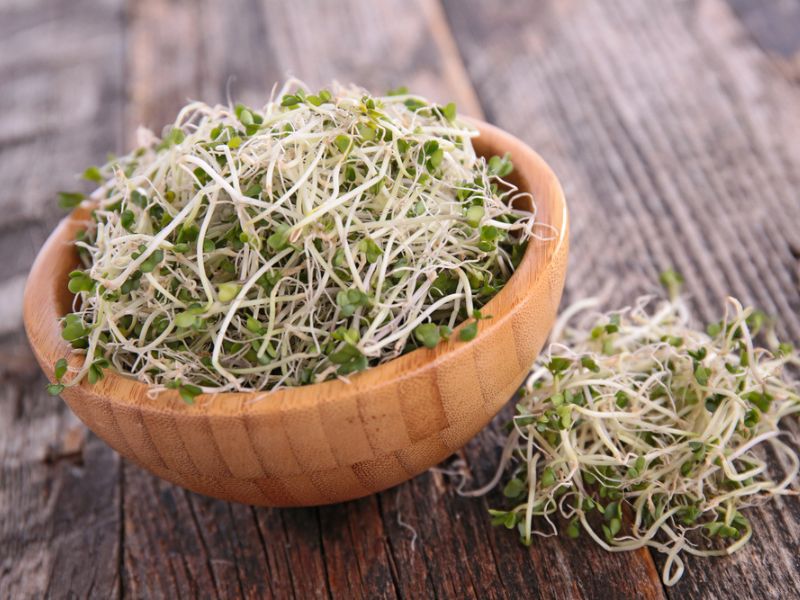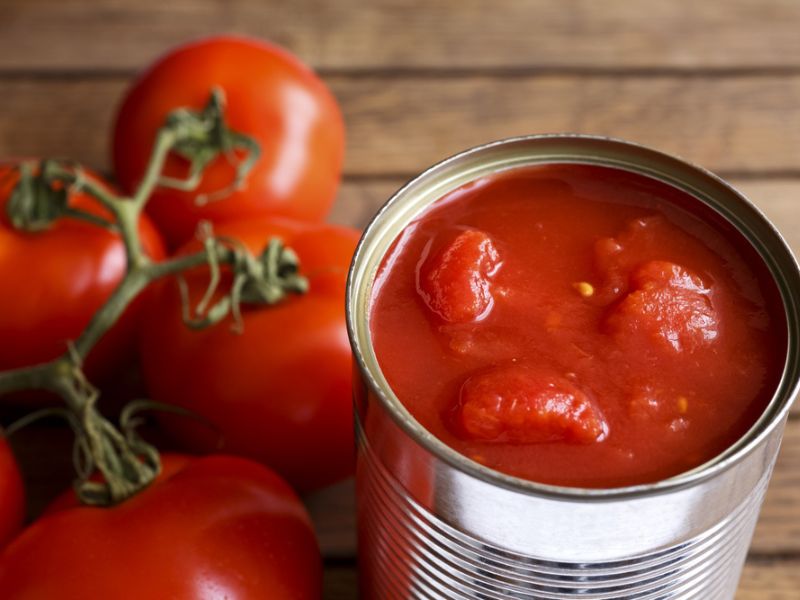When it comes to grocery shopping, we all want to make the best choices for our health. However, even seemingly healthy foods can harbor harmful bacteria or contain toxins that can harm our bodies. Food safety experts recommend avoiding these four foods at the grocery store to avoid these risks.

Image Credit: Shutterstock/Chatham172
Raw Sprouts
Raw sprouts, such as alfalfa, clover, and bean sprouts, have been linked to numerous outbreaks of foodborne illness in recent years. It is because sprouts are grown in warm and humid conditions, which are ideal for the growth of harmful bacteria like Salmonella and E. coli. Raw sprouts should be avoided entirely or thoroughly cooked before eating to reduce the risk of illness.
Pre-Cut Greens
Pre-cut salad greens are a convenient way to add some healthy greens to your meals, but they can also be a source of harmful bacteria. When greens are cut, the protective outer layer of the leaves is exposed to air and moisture, creating an environment where bacteria can thrive. If you choose to buy pre-cut greens, be sure to use them within a day or two and store them in the fridge at or below 40 degrees Fahrenheit.
Raw Milk And Cheese
Raw milk and cheese may have a more natural taste and texture than pasteurized products, but they also pose a higher risk of foodborne illness. Raw milk can contain harmful bacteria like Salmonella, E. coli, and Listeria, which can cause serious illness, especially in young children, pregnant women, and those with weakened immune systems. Sticking to pasteurized milk and cheese products is best to reduce your risk of illness.

Image Credit: Shutterstock/Moving Moment
Canned Tomatoes
While canned tomatoes are a convenient and cost-effective way to add flavor to your meals, they can also contain harmful chemicals like BPA. BPA is a chemical used in the lining of many canned foods and has been linked to numerous health issues, including reproductive problems and an increased risk of cancer. To reduce your exposure to BPA, look for canned foods labeled BPA-free, or choose fresh or frozen tomatoes instead.